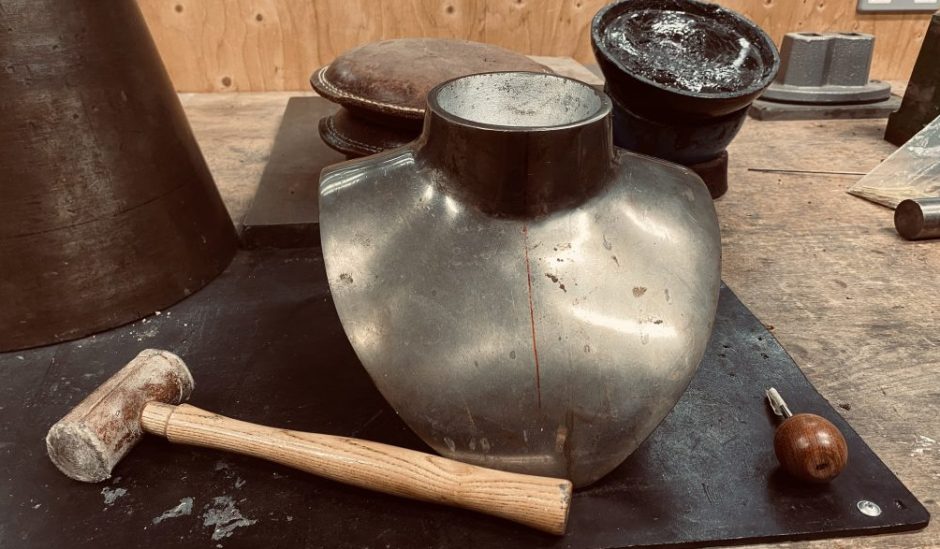Assessing learning and Exchanging Feedback.
As a Technical specialist in Jewellery design for both the BA & MA level we don’t have the need or the requirement to provide assessment or feedback in a formal sense.
Our role has always been seen as making the provision for Technical instruction and facilities but as any Technician will tell you that is far from the reality where we teach at the same level as our Tutor colleagues and often have greater contact with students on a day to day bases and seeing their work progression at closer lever where we together in it’s production.
Evaluation
The interactions I’ve had with students over the past two decades in higher education have often raised issues of students feeling intimidated by the assessment focused interactions with their year tutors. External feedback from tutors can have both positive and negative influence on students where the students may feel boosted or the need to bend or conform to the ideas put forward in in external feedback. ( Dweck 1999 )
Formative feedbacks purpose is to help generate performance and accelerate learning (Sadler 1998) with the student being proactive in building the framework for their own knowledge and skills rather simply being reactive to assessment focused feedback.
(Nicol & MacFarlane-Dick 2006)
Assessment led fed back from tutors is designed to engage with student in helping them construct parts of their own learning journey but I feel the impartiality of Technical Specialist can create a another safe space to discuss technical challenges and perhaps use these sessions as a sounding board for ideas that they want to approach year tutors with.
Technical tutorials for final year students is something I’ve started this year where I will take each student for a 20-30 minute session in which we discuss their project and find areas where they’re struggling in realising aspects of their design, if needed we can work on a new skill or process in the workshop to get them up and running.
Technicians can enable students to build the practical framework for problem solving their design ideas by sketching out ideas for constructing processes that the students can build on.
Feedback medium may be in the form of written notes and sketches that students can add to their Technical journal or video recordings of the technical process.
I feel that this style of tutorial is a collaborative process and one where the feedback can be acted on in moment by the student and discussed as we work on a project allowing the student to be a driving force in their own learning journey.
Moving Forward
This style of technical formative feedback session prioritises problem-solving over assessment and creates an environment conducive to skill development.
Final year students have been inspired by DIP’s years in industry where they have found new skills in an environment that was free from assessment, these sessions are an excellent opportunity to carry in exploratory learning and provide formative feedback in a collaborative manner.
I plan to carry these on in the spring term for final year students and perhaps have a group session with students and other technicians to give the students the opportunity to explore how processes that they have connected with in industry can be replicated in the workshop.
References
Nicol, David J. and Macfarlane-Dick, Debra(2006) ‘Formative assessment and self-regulated learning: a model and seven principles of good feedback practice’, Studies in Higher Education, 31: 2, 199 — 218
Dweck, C. (1999) Self-theories: their role in motivation, personality and development (Philadelphia,
PA, Psychology Press).
(Sadler 1998) Sadler, D. R. (1998) Formative assessment: revisiting the territory, Assessment in Education, 5(1),
77–84.
